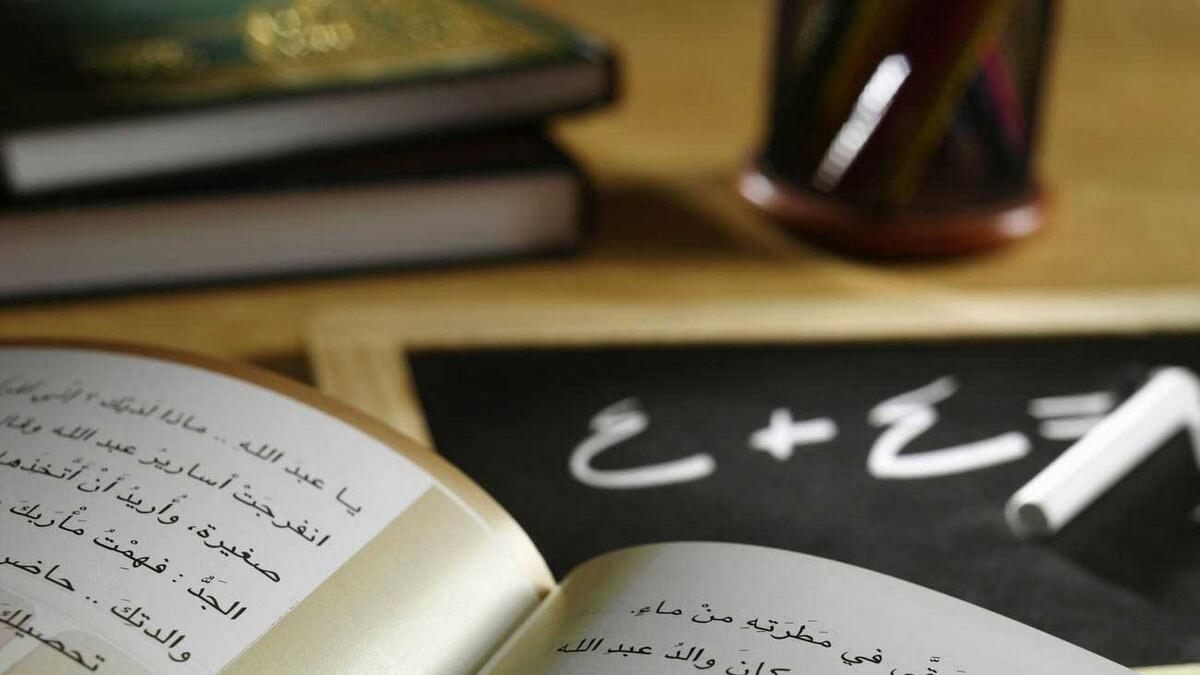The event involved over 100 Arabic teachers sharing best teaching practices with each other through workshops.
Published: Sat 10 Nov 2018, 3:00 PM
Updated: Sun 11 Nov 2018, 7:54 AM
A knowledge exchange programme in Dubai is helping Arabic teachers improve their teaching practices, as the event brings together several educators.
The fourth edition of the 'Living Arabic' event by the Knowledge and Human Development Authority (KHDA) took place on Saturday and had over 100 Arabic teachers sharing best teaching practices with each other through workshops.
Dr Kaltham Kenaid, director of research at KHDA, told Khaleej Times that she has seen the programme improve year after year as more schools are getting involved. This year, for example, 13 schools applied to KHDA to host the Living Arabic forum, even though the authority requires only three schools to apply. The Lycee Francias International Georges Pompidou school hosted this edition.
"Living Arabic started as a conference for the teachers to be able to help each other. They exchange experiences and best practices and this was the first year, which was in 2015-2016. The second year, we thought 'why not make it bigger?'. There was a big need of Arabic teachers in pedagogy, learning methodology and alignment of different curriculums. The next year, we had three conferences or events like this one throughout the year where teachers exchanged experiences," Dr Kenaid said.
The third year was when the 'Action Research' initiative was also implemented, which is where teachers create two sets of group of students and measure which teaching strategy is most effective. Six schools take part each year.
One group of students learn through new strategies that were discussed during a Living Arabic workshop, while, the other group - the control group - learns from the regular method. Then, the results are compared and the best strategy is decided.
"Reports were written on the whole experience from all of the schools," Dr Kenaid said. "We also have other initiatives and we try to collaborate with the community. For example, this year, Action Research will be under the patronage of Zayed University and they will train the new teams."
She also spoke about new resources that are being implemented to help teachers improve teaching practices, including a game called 'Seppo', which is a platform where teachers can create games that can be personalised to each student's needs and progress.
Feda Shtia, an Arabic consultant and trainer at Seppo, said several UAE schools have subscribed to the platforms and are using the game to make learning the Arabic language 'fun'.
"The teacher can modify the game according to each student's level," Shtia said. "The concept of the game is that you need to collect as many points to move to the next level. You can play it on the phone or tablet. Normally, the teacher will use the computer for grading and it's instant grading. The teacher can create questions within the game about grammar, put pictures, type texts, make multiple choice questions and students can upload images and videos."
Tamara Elsabbagh, an Arabic teacher at Lycee Francias International Georges Pompidou, said that she ensures her students learn how to have a full conversation in Arabic, instead of speaking just a few words to "get by".
She said: "Living Arabic is a very good idea because it brings together teachers. We all are colleagues here - it doesn't matter what school you are in, you are an Arabic teacher and can share experiences. We have the same objectives so it's effective to have a workshop where we can all participate in.
"It's not easy at all to teach a language but it depends on what activities you are providing to the students. We have to differentiate the activities and they should vary each day."
sarwat@khaleejtimes.com

